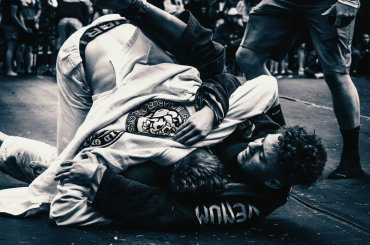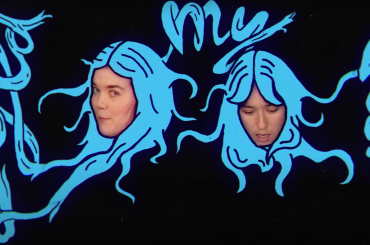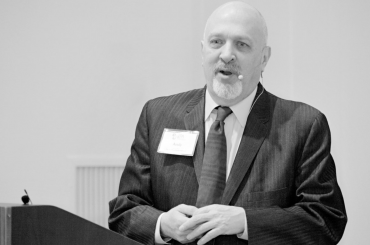When Lisa Capitanelli-Kasberg auditioned for a mitzvah-MC position in Los Angeles in 1990, little did she know that she would be hired immediately after accompanying Mark Ray to their very first event together.
And little did she realize at the time that she would be learning from the best of the best, as her new mentor just so happened to be one of the top mitzvah MC/DJs in their local California market.
“Mark Ray told me at the time he would put me on all of his events as his assistant, so I could learn how to be a mitzvah MC,” she recalls. “On the very first event we did together, I saw him in action and was blown away by his talent. And at the end of the event, he asked me if I thought I could do what he did – and I said yes.
“After the third event, it all started to come together, and it all came so naturally. I just did exactly what he did and then I started to add in my own style. If it wasn’t for Mark Ray, I would not be the MC/DJ I am today.”
Capitanelli-Kasberg went on to create I’m a Girl DJ in 1993, and later Cheers Entertainment before moving to Clarksville, Tenn., to raise twin daughters with her husband Kris, and also operate The Silent DJ.
“By the way, I ran into Mark a couple of years ago at an event he was doing, and even after 25 years, he hadn’t skipped a beat,” she says. “He’s still as talented as the first day we worked together. We keep in touch and I always tell him how grateful I am to have had him as my mentor.”
We recently contacted DJs from around the country and asked: Who was your DJ mentor? And how did that individual demonstrate how to do things right, or better—both entertainment-wise and business-wise?
Brian Doyle of Denon & Doyle Entertainment in Pacheco, Calif., claims that fellow Bay Area jock Andy Ebon—from whom he purchased his DJ business—was his mentor, and Doyle in turn has gone on to mentor others young entertainers within his market.
Today, Doyle mentors his business-development partner, Patrick McMichael, as well as Mark Haggerty, a longtime employee who today serves as the company’s production and event manager.
“The first thing I believe I learned from Brian Doyle was to not play the music that I myself would like, but to try to figure out what my clients would like and what the crowd desires,” explains Haggerty. “That seems rather basic, but musically reading a crowd is a talent that DJs—if they’re good at it—get praised for the most.
“Look at your audience whenever you make an announcement, and always make eye contact. This way you’ll know if they’re even listening. Your volume may not be loud enough, or they’re the type of crowd that is so caught up in conversation that you’re just white noise to them.
“You may need to repeat an important announcement a few times to get the point across—such as, ‘It’s time to sit for dinner,’ or, ‘Guests need to go outside for a picture with the bride and groom.’”
Haggerty says making contact with guests by looking at them while making announcements—a job skill taught by his mentor, Doyle—also helps him to realize what types of music the partygoers might prefer.
“We used to give our clients a sample music list for them to highlight,” he says, “but that could create problems if they saw a song they didn’t like and assumed we might play all they dislike—sending them down a negative path instead of focusing on songs they think their friends and family—and themselves—would dance to.
“When looking at a list, it’s important to read between the lines, and that list could all go out the window once the crowd is in front of you. No matter what they put down doesn’t mean it will work. Secondly, if you use a list, then you’ll never either get the credit—or the blame—for what comes out of the speakers, no matter if you or your clients picked the music.”
Haggerty claims that Doyle also pounded into his head the importance of testing all his equipment right away after setting up.
“You don’t want guests coming in the room and find you still troubleshooting a bad cable,” he says. “All of those things I learned through my mentor Brian – and, in fact, I still hear him preaching some of those things to this day.”
When Denny McConnell began operating Music to You Entertainment in the mid-1970s, he says there weren’t many mobile entertainers in Reading, Pa. And for that reason, he says he mostly learned the trade from experience and by watching other DJ entertainers perform.
“Yes, I’d say I’m self-taught,” says McConnell. “I went to the Billboard Disco Conventions from 1975 to 1978, in New York and then in Los Angeles.”
And then McConnell met Andy Ebon, the Northern California-based entertainer who also mentored Brian Doyle.
“I met Andy Ebon and we hit it off pretty well,” recalls McConnell. “He liked my style and I liked what he said he did. Andy wanted me to move to San Francisco and be his partner, but that never happened because I had a brand-new baby and the price of a one-bedroom apartment in San Francisco at the time was over $800 a month.
“I was going to try it for six months, but never did. So from 1978 until DJ Times’ first DJ Expo [in 1990], I learned by trial-and-error. That’s when I met Johnny Rozz, Bernie Howard, Roxanna and Jeffrey Greene, and learned a ton of things from them—especially Rozz.”
Since those earlier years of learning simply by experience and by doing things right and wrong, McConnell has gained much more by soaking up information from the true mentors he met at DJ Expo.
“Yes, I’ve attended every DJ Expo that DJ Times has ever had, and I’ve learned something at every one of them for the last 27 years,” he says. “And yes, I’ve been a successful DJ now for 43 years.”
Down in Rock Hill, S.C., Kevin Porter with Elite Entertainment says he first got into the business after a DJ friend—Duane Farmer—accidentally found himself double-booked.
“Duane taught me mostly just the entertainment side of things, as he wasn’t much for the business side,” Porter says. “In fact, I still use one of the first things he taught me, which was the music pie: You start at a certain hour and play three songs of a genre, then three more of a different genre and so forth. As the evening goes by, your genres may vary or shrink, and as a new hour starts you rotate/mix up the genres.”
Porter says Farmer also taught him to never play a slow song at the top or bottom of an hour—unless you want to make people leave.
“He also taught me to practice my microphone skills by making up a commercial for the billboards I see while driving around town,” he says. “Each commercial must be different, and they must be no less than 15 seconds long and no more than 30 seconds long.”
Back in New York state, DJ Mike Melice in Ithaca says he’s both been mentored and has in turn mentored other young DJs.
“I learned to DJ in 2003 from one of the top battle DJs in Upstate New York, and long-time friend DJ Simon Sez,” he recalls. “When I started, all the top DJs used a pair of Technics turntables and mixer, so I was able to learn how to mix, scratch, juggle, etc.”
But it wasn’t solely the mixing skills Melice learned from Simon Sez that took his career to the next level. “The business side of things I learned from being in sales and marketing and trial-and-error,” he says. “Keeping a good attitude, maintaining high standards and having a burning desire to learn and improve are all paramount.
“Some of the best DJs I know have never made a career out of it because of their poor attitude and closed mind. However, everyone wants to work with someone who has a great attitude.”
Melice is currently mentoring his good friend Paul Manzari to help take his business to the next level. Says Melice: “Paul is living proof that hard work and a great attitude attract success.”
A series of mentors during the career of K.C. KoKoruz in Chicago have helped him develop The Keith Christopher Entertainment Group into the successful company it is today.
“I went to work for Mike Klancnik at a company called Mobile Music Systems while I was in college,” he recalls. “He was the DJ my fraternity house hired for our parties and several of my Theta Chi brothers went to work for him, so I jumped on the bandwagon as well.
“He taught me all the basics with regard to setting up sound, lights, etc. He also taught me how to use turntables and to project my voice in a more commanding way to gain the attention of guests.”
KoKoruz says he began marketing his burgeoning sales career with Klancnik through the proven method of door-to-door sales… sort of.
“We knocked on the doors of fraternity and sorority houses,” he says, “speaking with the social chairpeople who hired the DJs for their parties. My mentor Mike also taught me how to sell weddings—although weddings were not his primary customer base.”
KoKoruz was later taught the art of mixing by a Chicago house DJ named “Jungle” Jorge Suarez. “As fate would have it, I had gone to high school with his brother and that’s how that connection was made.
“After I left Mobile Music and started my first DJ company, I attended the 1992 DJ Expo held in Chicago. It was there that I saw John Rozz speak for the very first time. I also saw Andy Ebon speak at that same show. What impressed me about the two of them was how little they talked about themselves, and how much they simply spoke about their topic. They also had obtained a level of business success for which I was striving.”
During his first DJ Expo experience, KoKoruz says that after each person spoke, he asked for a business card and then proceeded to call each of them after the conference. In turn, these successful DJ owners mailed out their various brochures, forms, etc., and most importantly shared their knowledge with this aspiring, 22-year-old DJ.
Twenty-five years later, KoKoruz says he still speaks with both of his mentors on a regular basis. “John Rozz’s energy and stage presence were very exciting to me,” he says. “I was a very confident DJ, but I had never been the MC who was on the dancefloor making the guests sing and clap to the music.
“And Andy Ebon helped me unlock my passion for marketing. He and I have said repeatedly that we both see the DJ industry through the eyes of sales and marketing, because you have to do the hustle to get the event before you can spin and rock it.”
When Mike Walter of Elite Entertainment in Tinton Falls, N.J., started with Star DJ’s back in the late 1980s, owners John Murphy and Rick Galdi were his early mentors.
“I learned literally everything from them,” he recalls, “but I guess the most important thing is that what we do is duplicatable. It can be easily taught, and in doing so, you can build a company of consistent DJs.”
As it turned out, Walter went out and did likewise with Elite Entertainment, which he’s built into one of the East Coast’s most formidable entertainment companies. Additionally, he’s parlayed his always-ascending status in the DJ industry into a successful speaking career, often doing presentations on DJ training – a formal mentorship, of sorts. As he’ll willingly admit, much of that inspiration and knowledge came from his always-energetic, business-savvy mentors.
Paying it forward, good karma, whatever you want to call it – mentorship remains a huge factor in the successes of our industry’s biggest names.








